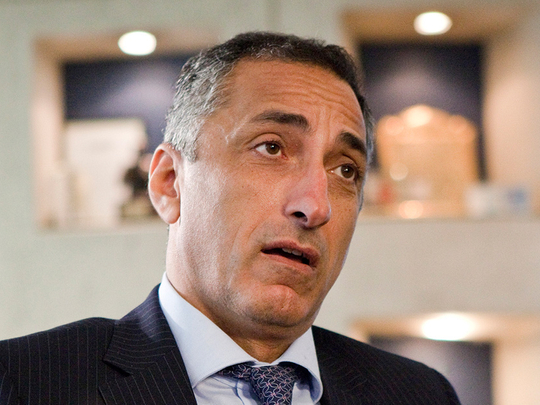
Dubai, Cairo: Egyptian Central Bank Governor Tarek Amer said inflation in the most populous Arab country has peaked after policy makers responded to the surge in prices by raising borrowing costs to the highest level in more than a decade.
“We are in the right direction and we are moving very fast,” Amer said in an interview with Bloomberg TV in Dubai on Monday. “We’ve been aggressive in our monetary policy, and this has been resisted a bit. But we thought it’s important so we can get our shop fixed very quickly.”
Egypt in November became the first Arab country to liberalise the exchange rate as part of a sweeping programme to restore investor confidence in an economy battered by years of unrest. The government also reduced fuel and electricity subsidies, steps that past administrations had baulked at to avoid stoking social unrest. The plan helped secure a $12-billion (Dh44 billion) IMF programme in November and encouraged investors to pour about $16 billion into local-currency debt, attracted by one of the world’s highest yields.
Inflation has surged to more than 30 per cent, the highest level in decades. In response, the central bank has raised interest rates 700 basis points, or 7 per centage points to 18.75 per cent for the benchmark overnight deposit rate.
The Monetary Policy Committee said in July that it sees a “measured easing of the monetary policy stance to allow for a reduction in interest rates” as soon as “underlying inflation” starts to moderate.
The following month, the pace of price increases slowed to 1.1 per cent from 3.2 per cent in July. Monthly core inflation, which excludes volatile items and regulated products, eased to 0.3 per cent, the lowest level in a year.
“I am getting more comfortable, much more comfortable,” the governor said.
Amer, a former Citigroup Inc. banker and head of Egypt’s largest state-owned lender, was named governor at the end of 2015. He inherited an economy struggling with a dollar shortage that had squeezed business and led to the emergence of a black market for foreign currencies.
Speaking 10 months after the unprecedented decision to float the pound, he said the economy was responding “very, very nicely” to the reform measures. Gross domestic product (GDP) accelerated to 4.9 per cent in the fourth quarter of the fiscal year that ended June 30, from 4.3 per cent in the previous three months.
“Our GDP now has become now export-driven,” Amer said.
Egypt has replaced South Africa as the continent’s top investment destination “largely because of its superior economic activity score and sluggish growth rates in South Africa”, Rand Merchant Bank said in a summary of its ‘Where to Invest in Africa 2018’ report. South Africa held the first place for the previous six editions.
The central bank is targeting an inflation rate of 13 per cent, plus or minus 3 percentage points, in the last quarter of 2018. It then wants to bring the rate down to 7 per cent in the medium term, Amer said.
Ahmad Shams, head of research at investment bank EFG-Hermes, said he expects the central bank to slash borrowing costs between 3 to 4 percentage points over the next 12 months. “We are positive that monetary policy makers will start to normalise rates soon,” he said.
The governor said he doesn’t expect any major shocks to the economy or to prices over the next year. “We’re done in terms of the reforms. The tough decisions are done.”
The IMF’s second programme review, scheduled for the end of October, will be a “regular” one, he said.
“We are out of the ditch,” he said. “It has been very difficult. It was not easy at all.”












